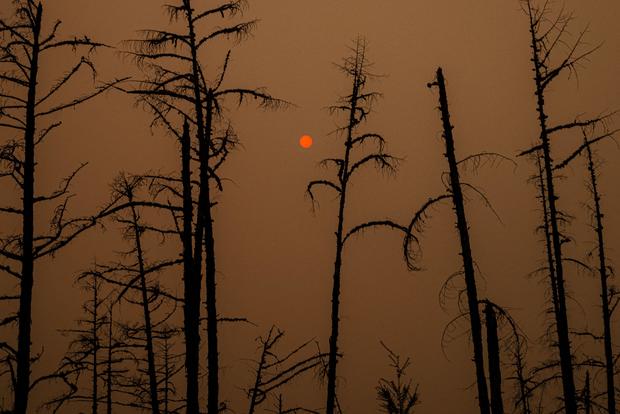Newly-confirmed Arctic record 100-degree heat in Siberia setting off climate change "alarm bells," U.N. says
The United Nations on Tuesday officially recognized the 38 degrees Celsius measured in Siberia last year as a record high for the Arctic, sounding "alarm bells" about climate change.
The sweltering heat — equivalent to 100.4 degrees Fahrenheit — was seen on June 20, 2020 in the Russian town of Verkhoyansk, marking the highest temperature ever recorded above the Arctic Circle, the World Meteorological Organization said.
This is the first time the WMO has added record heat in the Arctic to its archive of extreme weather reports, and it comes amid an unprecedented wave of record temperature spikes globally, the U.N. agency said.
"This new Arctic record is one of a series of observations reported to the WMO Archive of Weather and Climate Extremes that sound the alarm bells about our changing climate," its chief, Petteri Taalas, said in a statement.
Verkhoyansk is about 70 miles north of the Arctic Circle and temperatures have been measured there since 1885.
The temperature, which the agency pointed out was "more befitting the Mediterranean than the Arctic", was measured at a meteorological station during an exceptionally prolonged Siberian heatwave.
The average temperatures across Arctic Siberia reached up to 10 degrees Celsius above normal for much of the summer last year, the WMO said, adding that this had fueled fires and massive sea-ice loss.
The heatwave also played a significant role in 2020 being designated one of the three warmest years on record globally.
Last year also saw a record high of 18.3 degrees C (64.9 Fahrenheit) for the Antarctic continent, Taalas said.
The WMO is still seeking to verify the 54.4 C (129.92 F) recorded in both 2020 and 2021 in the world's hottest place, Death Valley in California.
And its experts are working on validating a new European temperature record of 48.8 C (119.8 F) reported on the Italian island of Sicily this past summer.
The WMO's archive "has never had so many ongoing simultaneous investigations", Taalas said.




